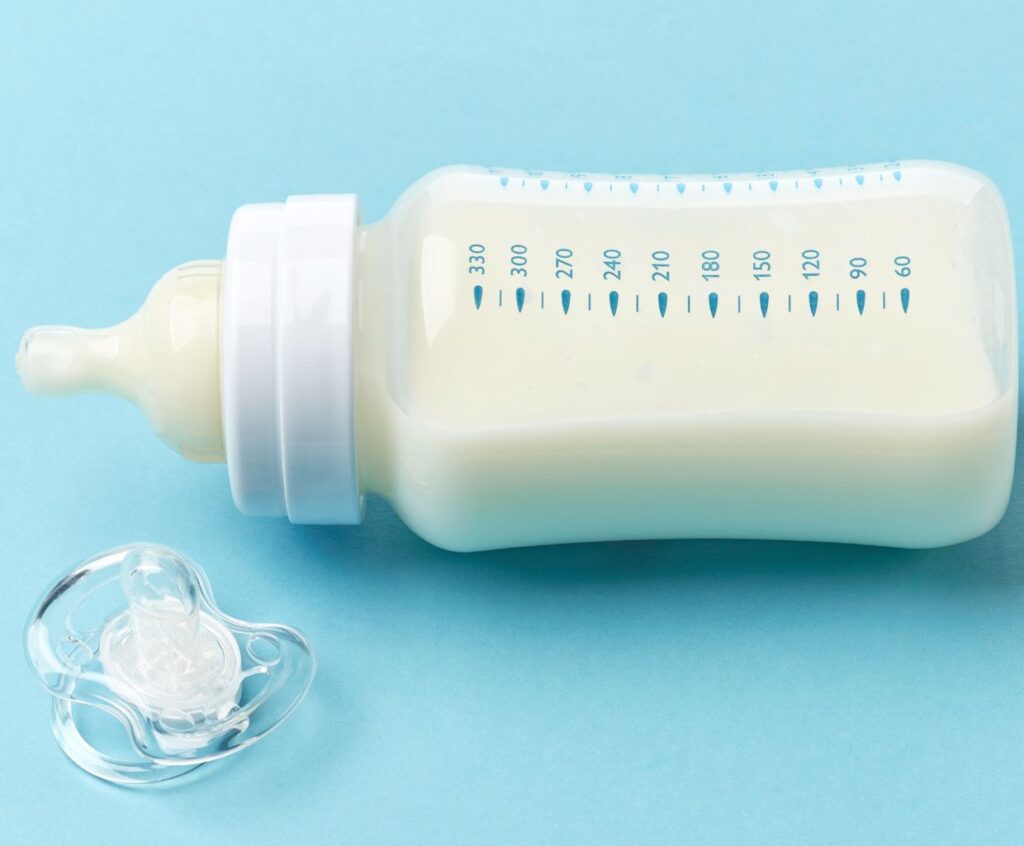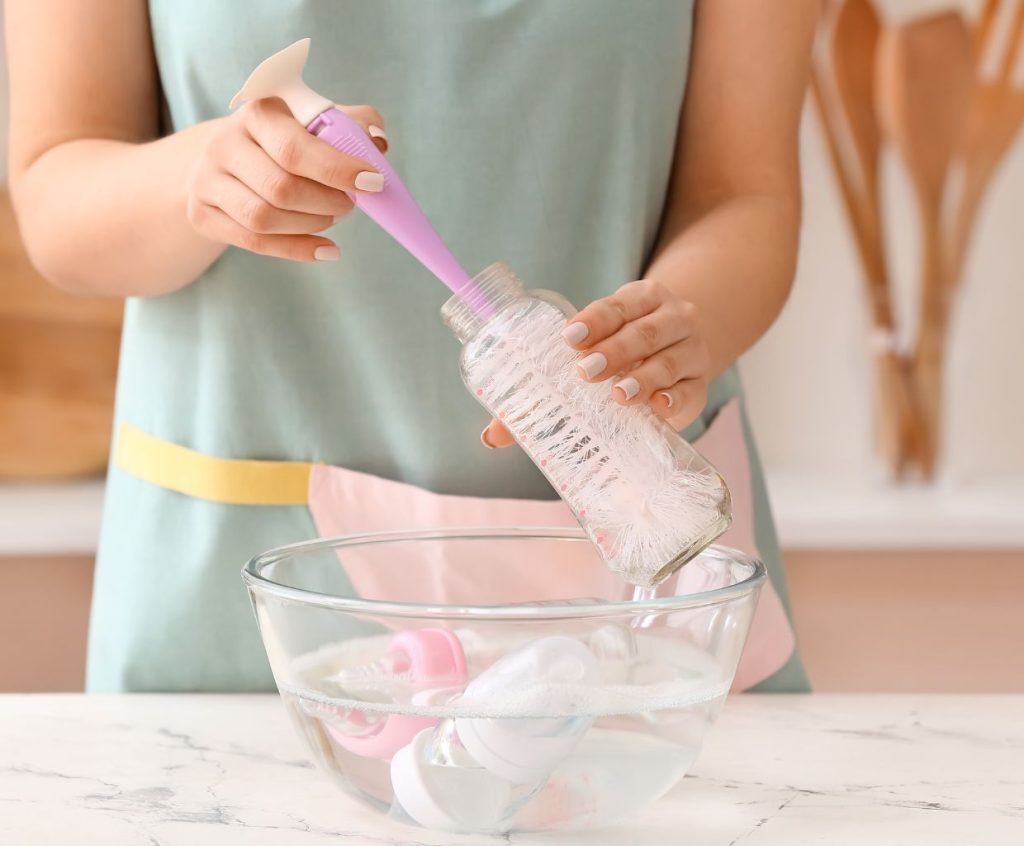How Long Do Baby Bottles Last: A Guide to Bottle Safety and Maintenance
When feeding your little one, baby bottles are an essential tool. But have you ever wondered how long these bottles can be used before they need to be replaced?
Understanding bottle safety and maintenance is crucial to ensure your baby’s health and well-being.
Factors Affecting Bottle Lifespan
Several factors can influence the lifespan of a baby bottle. One of the most important considerations is the material from which the bottle is made. Most bottles are made of either plastic or glass.
Plastic Bottles
Plastic bottles are a popular choice due to their lightweight and durable nature. However, they are more prone to wear and tear than glass bottles. It is recommended to regularly inspect plastic bottles for any signs of cracks, discoloration, or deformation. If you notice any damage, replacing the bottle immediately is an excellent way to prevent potential health risks.
Glass Bottles
Glass bottles, on the other hand, tend to have a longer lifespan than plastic bottles. They are less likely to deteriorate or degrade over time. However, checking for any chips or cracks in the glass is essential, as these can pose a safety hazard. If you notice any damage, replacing the bottle is best to ensure your baby’s safety.
Maintaining Baby Bottles
To extend the lifespan of your baby bottles, proper maintenance is critical. Here are some valuable tips:
-
- Regularly clean bottles using warm, soapy water or a brush after each use.
-
- Thoroughly rinse bottles to remove any leftover milk or formula.
-
- Consider using a dishwasher to sanitize bottles, but always check the manufacturer’s instructions to ensure they are dishwasher-safe.
-
- Inspect bottle nipples for signs of wear and tear, such as cracks or tears, and replace them every two to three months.
-
- Store bottles in a clean and dry place to prevent bacteria or mold growth.
By following these maintenance practices, you can help ensure your baby bottles remain safe and hygienic for an extended period.
How can proper maintenance and cleaning routines enhance the longevity of baby bottles?
Proper maintenance and cleaning routines are essential for enhancing the longevity of baby bottles. Here are some ways they can help:
1. Preventing bacterial growth: Regular cleaning and sterilization of baby bottles can help prevent the growth of harmful bacteria. This is particularly important for newborns and infants who have weaker immune systems. Bacteria can thrive in leftover milk or formula residue, leading to contamination and potential health risks. Proper cleaning routines, including thorough washing and sterilization, can eliminate bacteria and ensure the bottles remain safe.
2. Avoiding residue buildup: Over time, milk or formula residue can build up inside baby bottles, leading to unpleasant odors, discoloration, and mold growth. Regular cleaning can prevent residue buildup and keep the bottles fresh and odor-free. It is essential to wash the bottles thoroughly after each use, paying attention to all the nooks and crevices, including bottle nipples and caps.
3. Preserving bottle materials: Baby bottles are typically made of plastic, glass, or silicone. Regular cleaning can help preserve these materials and prolong the life of the bottles. For plastic bottles, harsh chemicals or high-temperature sterilization methods should be avoided as they can cause the material to degrade or become discolored. Glass bottles should be handled with care to prevent breakage, and silicone nipples should be inspected regularly for signs of wear and tear.
4. Extending usability: Properly maintaining baby bottles can be reused for subsequent children or even passed on to other families. This not only saves money but also reduces waste. Proper cleaning and storage can keep the bottles in good condition for future use.
To ensure proper maintenance and cleaning, follow these tips:
- Rinse bottles immediately after each use to remove any remaining milk or formula.
- Wash bottles thoroughly with warm, soapy water, using a brush to reach all areas.
- Sterilize bottles regularly, especially for newborns and during illness, by boiling them in water or using a sterilizing solution.
- Inspect bottles and nipples regularly for signs of wear or damage and replace them as needed.
- Properly store clean and dry bottles in a clean, dust-free area to avoid contamination.
By following these practices, parents can ensure that baby bottles remain safe, hygienic, and long-lasting for their little ones.
What are the key factors that determine the lifespan of baby bottles?
Several key factors determine the lifespan of baby bottles:
1. Material: The type of material used in the baby bottle plays a crucial role in its lifespan. Common materials include glass, plastic, and stainless steel. Glass bottles have a longer lifespan as they are less prone to wear and tear than plastic bottles.
2. Usage and maintenance: How frequently the bottle is used and how well it is maintained also impacts its lifespan. Regular cleaning, sanitizing, and proper storage can help prolong the bottle’s lifespan.
3. Handling and storage: How the bottle is handled and stored also affects its lifespan. Rough handling, dropping, or exposure to extreme temperatures can lead to cracks, leaks, or damage to the bottle.
4. Age and wear: Baby bottles can experience wear and tear over time due to constant use. Nipples may become worn out, bottle caps may lose effectiveness, or the bottle may develop scratches, impacting its lifespan.
5. Quality and brand: The quality of the baby bottle and the reputation of the brand can also determine its lifespan—Higher-quality bottles from trusted brands often last longer than cheaper, low-quality alternatives.
It is essential to regularly inspect baby bottles for signs of wear and damage and replace them if needed to ensure the safety and well-being of the baby.
How Long Do Baby Bottles Last – Conclusion
Knowing how long baby bottles last and properly maintaining them is crucial for your baby’s health and well-being. Regularly inspecting your bottles for any damage, regardless of the material, and following proper cleaning and storage practices will help ensure that your baby’s feeding experience remains safe and enjoyable.


